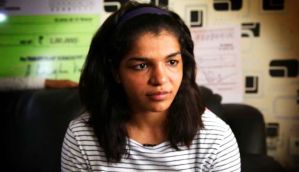
Ten refugee athletes will march into the Maracanã Stadium in Rio de Janeiro on Friday, August 5, 2016. Unlike the other athletes there, they will not represent the countries of their birth, heritage or citizenship. These athletes will comprise the first-ever Olympic refugee team, and they will march under the Olympic flag.
"We want to send a message of hope for all refugees in our world," said Thomas Bach, president of the International Olympic Committee. With over 65 million forcibly displaced persons worldwide, 21 million of them refugees, hope may be as essential as food and housing.
War, civil unrest, genocide, criminality, environmental catastrophes, famine, poverty and disease have led to the voluntary and involuntary migration of far too many people around the globe.
These 10 athletes will likely draw significant media attention. But what happens after the television crews pack up their equipment, the stadium lights go off and the crowds go home? Having been sensitized to the plight of refugees, what will viewers do with this information?
As a scholar who studies refugees, I think wealthy nations like the United States could do more, but politicians need a clearer mandate from their constituents. A humanitarian response could include the resettlement of more carefully vetted refugees in the United States, but that is not the only option. Wealthy nations could provide more financial assistance to the international organizations that provide emergency relief.
But it is also within governments' power to facilitate the conditions that would allow refugees to return to their homelands, to rebuild their lives and communities. Returning home is what refugees ultimately seek.
Searching for durable solutions
The United Nations High Commissioner for Refugees (UNHCR), the U.N. agency mandated to protect the rights of those fleeing war and persecution, seeks three durable solutions to refugee crises - voluntary repatriation, integration in host societies or resettlement in third countries.
More than half of all forcibly displaced people are children. Because of protracted conflicts, the average refugee can now expect to spend a quarter-century away from home. Exile is all these refugee children may ever know, undermining ties to the homeland and preventing them from fully integrating into a host society.
While "durable solutions" are worked out, aid workers try to meet refugees' immediate needs: housing, food, water and medical care. Humanitarian aid becomes all the more important in a world where resettlement options are limited, and interventions to prevent or mitigate humanitarian crises are perceived as questionable foreign policy. For decades now, the UNHCR and other refugee relief organizations have responded to refugee crises with ever-diminishing resources.
Only three percent of the UNHCR's budget comes from the United Nations. The remaining 97 percent comes from voluntary contributions from governments, corporations and individual donors. The United States ranks among the top 10 donor nations, offering close to 30 percent of all humanitarian aid.
Yet, the need for humanitarian aid has never been greater. Roughly 40 percent of those forced to flee across international borders settle in refugee camps, with populations larger than some U.S. cities. In these camps, immediate needs are met, but refugees are denied a chance to legally work, practice professions, run businesses, own property, choose their place of residence, move about freely or become citizens.
The education and medical care offered them are rudimentary, at best. Their safety is often compromised, and they are vulnerable to trafficking and other forms of organized crime. Housing that was designed to be temporary has become increasingly permanent.
Sixty percent of refugees bypass camps altogether and try their luck in urban areas. There, many work in the underground service economy and are easily exploited.
What's in it for us?
Financial costs of resettlement in third countries can be exorbitant, making nations less likely to want to accommodate a large share of refugees. Domestic interests trump international obligations, even if they are, like the United States, signatories to the U.N. Convention on Refugees. Less than one percent of refugees under the care of the UNHCR ever receive permanent resettlement in third countries like the U.S.
Given these circumstances, greater financial assistance to the UNHCR and other international relief agencies is necessary, and not just because it's the humane thing to do.
Policymakers have long recognized that a large, sudden influx of refugees can politically and economically destabilize developing countries and regions. Refugees compete with host populations for land, jobs, housing and other scarce resources. These social pressures can exacerbate ethnic, racial and sectarian tensions and make them scapegoats for local and national problems.
They sometimes trigger new political conflict that causes further displacement. Addressing the refugee crises of today helps to prevent - or, at the very least, mitigate - the political crises of tomorrow.
Perhaps, the greatest assistance we can offer refugees is to hold our governments accountable for policies that contribute to their displacement. In 2007, for example, the United States provided US$30 million to the UNHCR to assist Iraqi refugees, but this number paled in comparison to the estimated $2 billion per week they spent to wage the war that made many Iraqis flee as refugees.
UN Secretary General Ban Ki-Moon said:
Refugees want homes, not tents. They want a flag that waves for their rights. And they deserve a world that gives them more than assistance; they deserve a world that is at peace.
Many refugees want to return home, if their safety can be guaranteed. Throughout its history, the UNHCR has facilitated the voluntary repatriation of countless refugees around the world. But today, repatriation is at a 20-year low.
The 10 refugee athletes competing at the Rio Olympics will no doubt give other refugees hope. "Let us all be on the team of refugees until there is no need for a refugee team at all," said the UN secretary general.
Given that one in 122 humans is now either a refugee, internally displaced or seeking asylum, it looks like we may have many more Olympic refugee teams in the future.
![]()
María Cristina García, Howard A. Newman Professor of American Studies, Department of History and Latino Studies Program, Cornell University
This article was originally published on The Conversation. Read the original article.
First published: 21 June 2016, 17:39 IST






![BJP's Kapil Mishra recreates Shankar Mahadevan’s ‘Breathless’ song to highlight Delhi pollution [WATCH] BJP's Kapil Mishra recreates Shankar Mahadevan’s ‘Breathless’ song to highlight Delhi pollution [WATCH]](https://images.catchnews.com/upload/2022/11/03/kapil-mishra_240884_300x172.png)

![Anupam Kher shares pictures of his toned body on 67th birthday [MUST SEE] Anupam Kher shares pictures of his toned body on 67th birthday [MUST SEE]](https://images.catchnews.com/upload/2022/03/07/Anupam_kher_231145_300x172.jpg)






